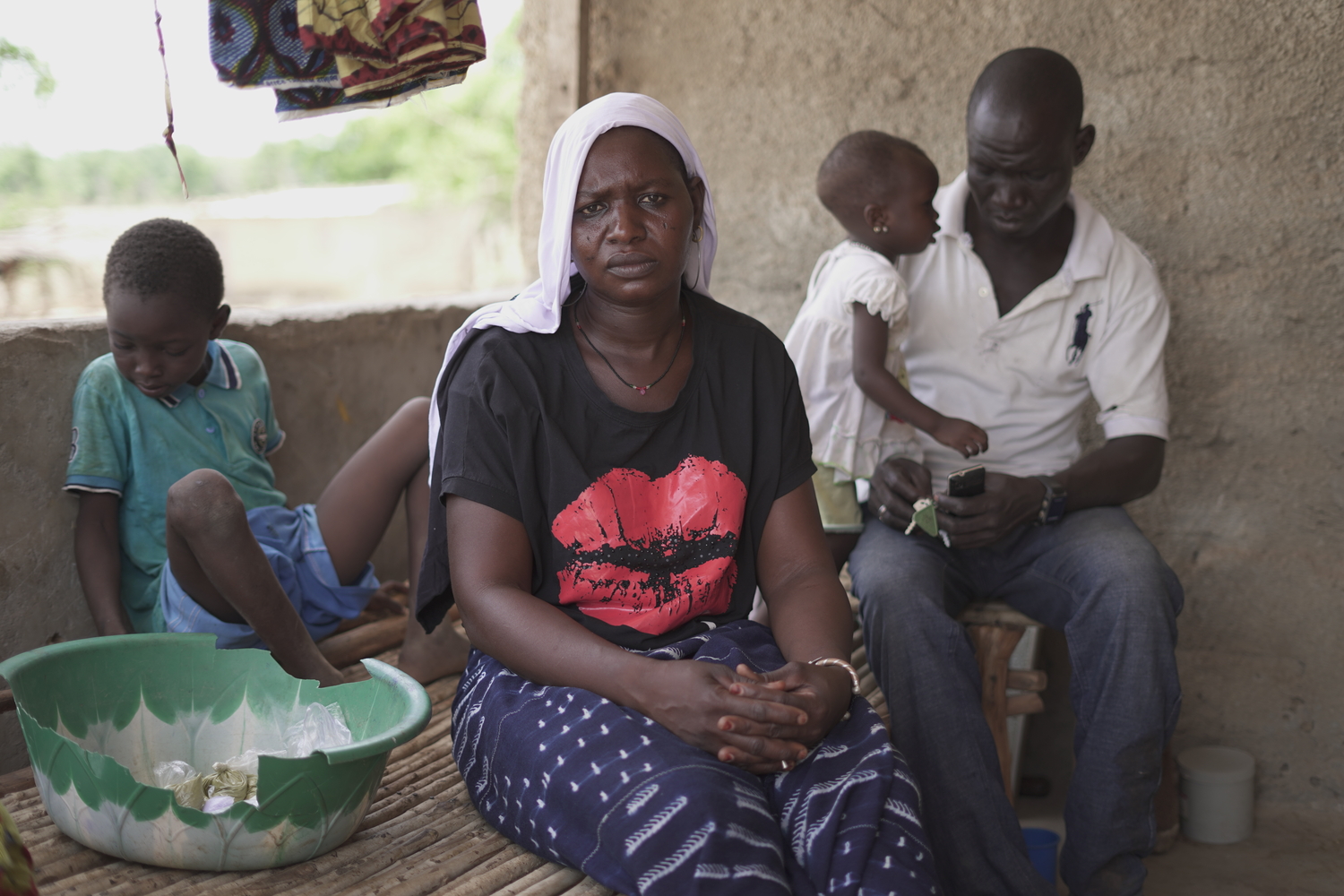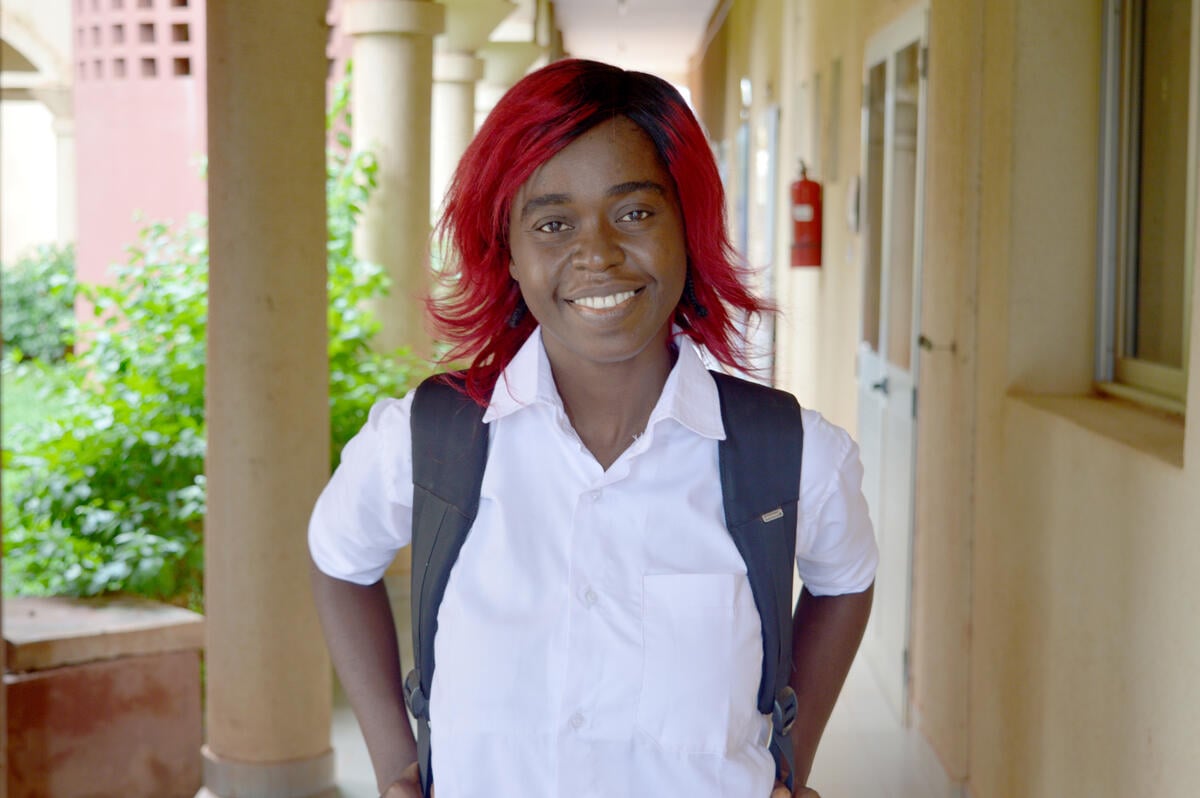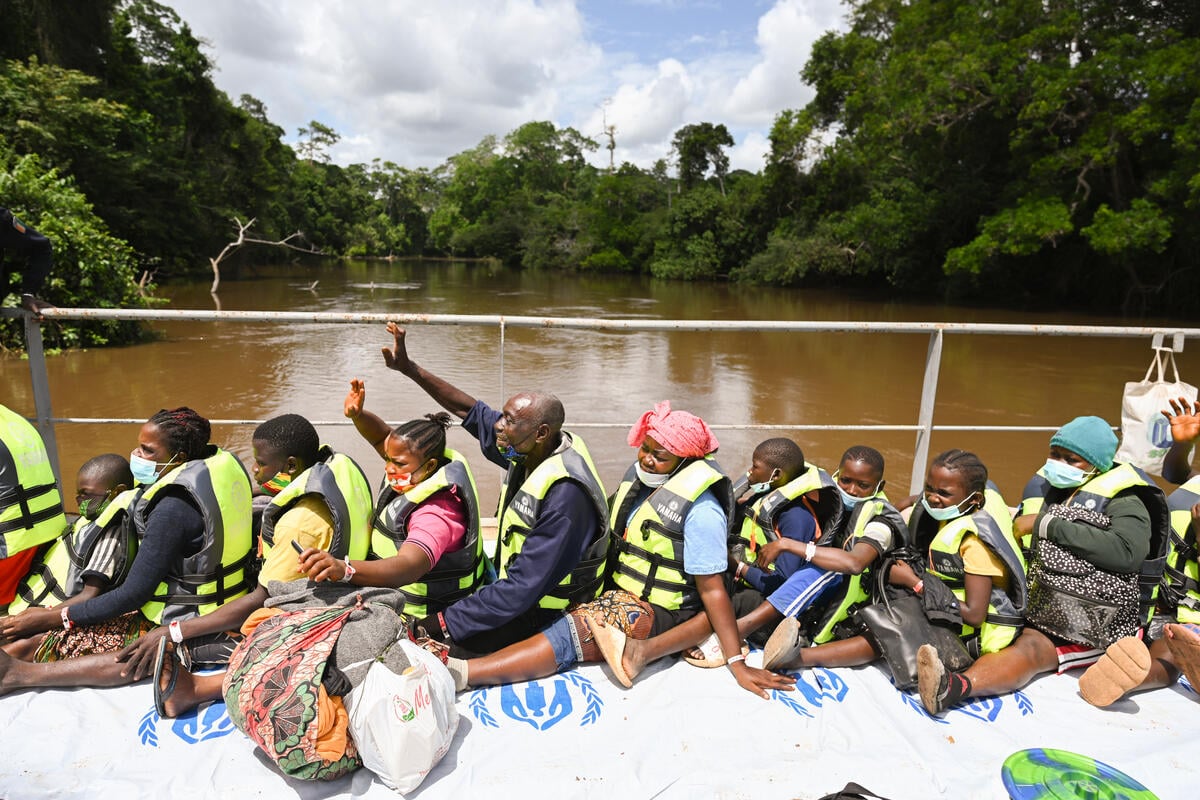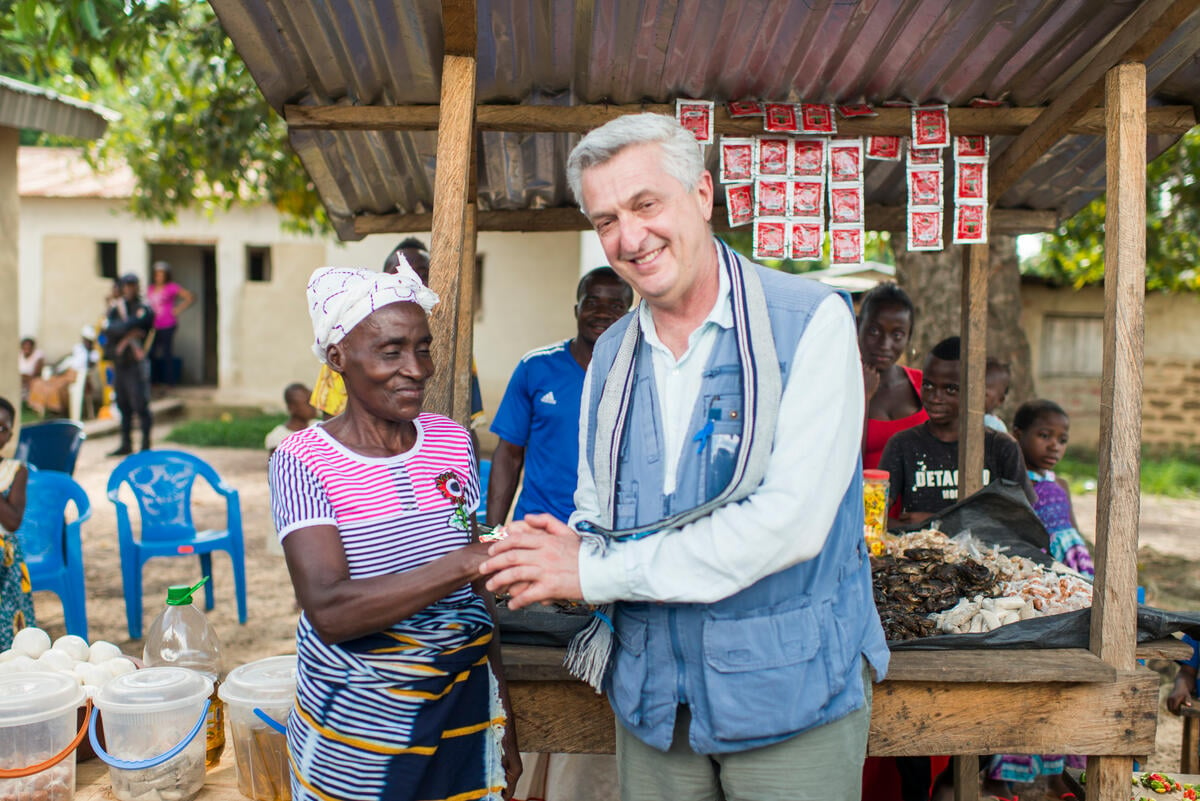UNHCR shocked at mounting violence in Côte d'Ivoire
UNHCR shocked at mounting violence in Côte d'Ivoire

ABIDJAN, Côte d'Ivoire, March 18 (UNHCR) - The UN refugee agency said on Friday it was shocked at the escalating violence in Côte d'Ivoire, which has led to continuing population displacement. Fighting this week in the country's commercial centre, Abidjan, has been at its fiercest level since the political crisis began after the presidential election in November.
On Thursday, residents of the city's northern suburb of Abobo came under heavy shelling, leaving at least 25 people reported dead and many more injured. Earlier in the week, several other parts of Abidjan also registered attacks.
A police station and the market of Williamsville were torched following attacks and a UNHCR monitor on Thursday saw at least 30 shops burned down and on Friday spotted spent bullets in the area. In Adjame, another main district of Abidjan, a community radio station was attacked and set on fire.
Meanwhile, sporadic gunfire continued to be heard in several districts of Yopougon, where heavy fighting took place on Monday between supporters of the rival presidential candidates.
The urban warfare in Abidjan is causing further population displacements as it intensifies. On Wednesday morning, large numbers of internally displaced people (IDPs) could be seen in various areas of the city, where some 300,000 people have been forcibly displaced since November.
In Williamsville, Paillet and Plateau-Dokui, bus terminals were full of families seeking to go back to their villages of origin in search of safety. These districts are close to Abobo, where most of these people fled from.
Households hosting IDPs are seeing their resources being depleted. UNHCR staff are starting to receive desperate phone calls for help from both these host families and internally displaced people.
We are trying to respond to their calls. However checkpoints, harassment and fighting are reducing the ability of humanitarian agencies to move and are also turning aid delivery into a slow and risky undertaking.
Despite these obstacles, UNHCR - through its partners -- has since last Saturday distributed aid to 13,000 displaced people in 31 locations across Abidjan and surrounding villages.
In western Côte d'Ivoire, UNHCR is especially worried about the fate of some 3,000 to 5,000 IDPs trapped in the Catholic Mission in the town of Duékoué, following renewed fighting on Thursday.
The IDPs are asking for help, telling UNHCR staff they cannot move as surrounding areas have many armed checkpoints. UNHCR and its partners are trying to arrange ways to help this population and has appealed to the warring parties to allow humanitarian access to displaced civilians.
Still in the west, fighting along the border with Liberia is forcing more civilians to flee to the neighbouring country. The rapidly growing number of Ivorian refugees in Liberia has now reached 90,000, putting tremendous strain on the impoverished host communities.
In Ghana, another of Côte d'Ivoire's neighbours, there has been a sudden rise this week in the number of Ivorians seeking asylum. More than 500 people have arrived from Abidjan, when only 160 refugees had previously fled to Ghana since late November. This could mark the beginning of a trend.
The political instability is also affecting the 24,000 Liberian refugees who are residing in Côte d'Ivoire. On Saturday, UNHCR will begin air repatriation for those of them who wish to go back to Liberia.








